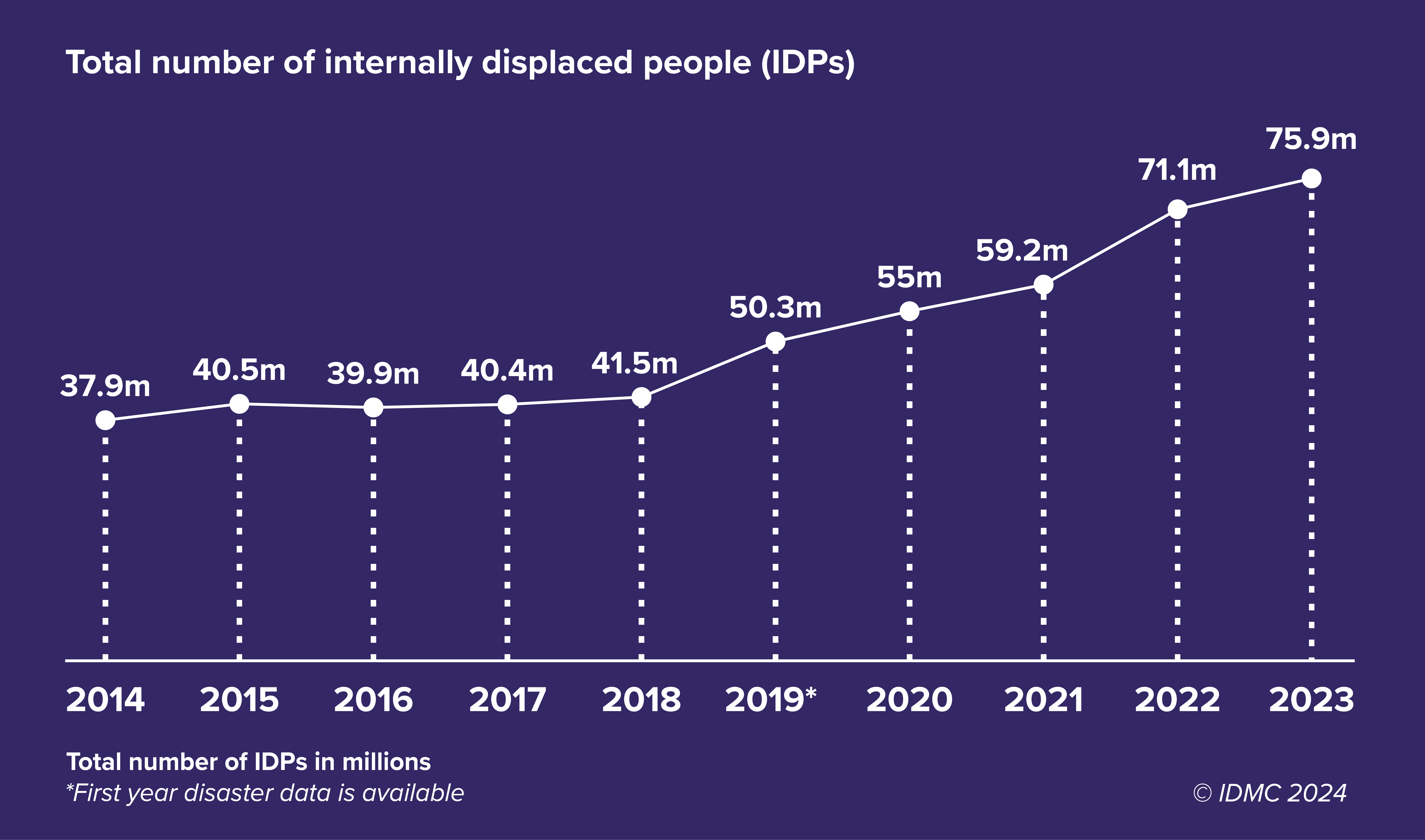Making IDPs visible in national statistics: a step towards sustainable solutions
A large part of the IDPs reside in some of the poorest and most fragile countries in the world. Sudan, Syria, the Democratic Republic of the Congo, and Yemen, are among the top five countries hosting the largest IDP populations, mostly due to conflicts and violence. Some were newly displaced last year, but others have been displaced for years or even decades. In 2023, other countries including Burkina Faso, Somalia and Haiti reported their highest figures on record.

Data is crucial to achieve these goals. The UN Secretary General’s Action Agenda on Internal Displacement indicated the commitment to support States in collecting, managing and using IDP data in line with international recommendations and other relevant international standards. During the last four years, the Joint Data Center has engaged in several activities aiming to foster government ownership of data and increase IDP visibility in national statistics. We support the important work of the Expert Group on Refugee, IDP and Statelessness Statistics (EGRISS); and we collaborate with National Statistical Offices and other partners in different contexts to stimulate the production of data and evidence in countries with historically high number of IDPs (Colombia); with high rates of violence (Honduras); exposed to severe climate shocks (Somalia); and affected by acute poverty (Central African Republic).
But entire areas of statistical invisibility persist. A recent joint UNHCR-JDC brief on the perceptions of safety of those displaced by violence in Mexico illustrates the lack of regular data collections for this population in many areas of Central America and Mexico, and the importance of their inclusion in national statistics.
Internal displacement is a traumatic event, with profound repercussions on the physical and mental health of those affected by it, as shown in the papers included in our latest Literature Review Update. At community, regional and national levels, it is a complex political, social and economic phenomenon. Robust, comparable and accessible data is one necessary element in the path towards sustainable solutions.

Aissatou (Aisha) Dicko
Head of the World Bank-UNHCR Joint Data Center on Forced Displacement


